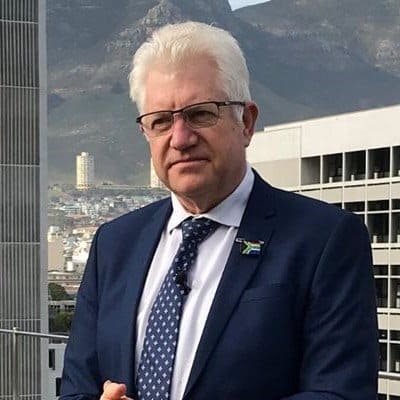THE newly established Integrated Energy and Water Council will coordinate and support the Western Cape government’s strategies to achieve energy and water security in the province.
“We must do everything that we can to secure enough water and energy so that our economy can flourish and create more jobs,” said Premier Winde at the start of the council meeting.
The scope of the Energy Council, which was set up early last year at the height of the load shedding crisis, has been expanded to achieve the objectives outlined in the Growth For Jobs strategy (G4J), Western Cape Energy Resilience and 15-year Western Cape Water Resilience programmes.
“If we are to drive economic growth and create more jobs we must secure and stabilise the Western Cape’s increasing demand for electricity and water. We may have had good rains this winter and load shedding has been suspended for now, but we are not complacent. Just as the Energy Council has been working to make the province energy resilient by enabling and empowering the private sector and municipalities to explore alternative renewable energy solutions, so too must we seek out ways to better conserve and manage our water use,” stated Premier Alan Winde, “This is why we have added water resilience to the Western Cape government’s key priorities. The council will assist in integrating our various initiatives.”
At its first meeting, Western Cape government ministers, Heads of Departments, mayors, and municipal managers were given an update on how the newly constituted council will operate.
The council’s responsibilities have been expanded to include identifying and actioning solutions to avoid future water scarcity by:
- Addressing the causes of water losses;
- Investing in the construction and maintenance of water infrastructure;
- Seeking out opportunities for groundwater exploration; and
- Improving water quality.
With the mandate of the council now secured, teams across the Western Cape government will start to work on the key initiatives required to start implementing the water resilience strategy.
Increasing energy prices are totally unacceptable
The council discussed at length the continued increases in energy prices, the impact that this is having on households’ budgets and the unacceptable proposal from Eskom to the National Energy Regulator (Nersa) to increase the sale of electricity by 43,55% to municipalities and 36,15% to its direct customers in 2025.
“This kind of price increase is intolerable. How can you even put a price increase like this on the table? As the Western Cape government we will be expressing our complete rejection of this proposal. This kind of price increase impinges on the dignity of our residents – people are going to have to decide between buying food or power. Rather than keeping residents as part of the energy system this kind of price increase will just encourage those who can to exit the Eskom energy system, leaving those who cannot afford an alternative energy option stuck with an unreliable and unaffordable supplier,” said Premier Winde.
“I have requested that the Western Cape government register to take part in the Nersa hearings on this proposed increase so that we can express our total rejection of these scurrilous proposals,” said Premier Winde.
